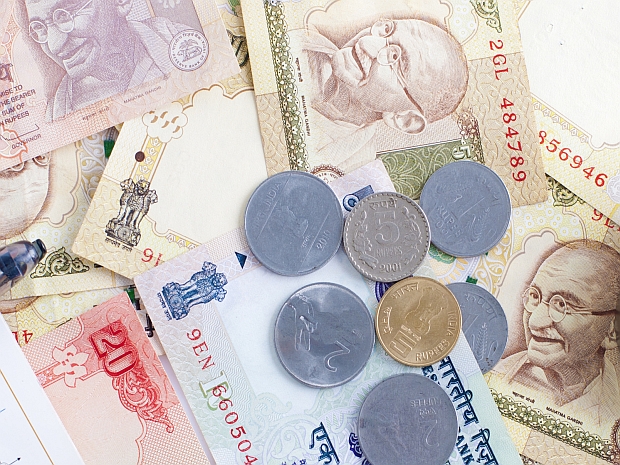GSMA rebukes India's decision on 2G spectrum pricing

India's decision to set the country's 2G spectrum auction prices higher than recommended is "surprising", especially since previous attempts to sell the spectrum had met with low interest.

In a statement released Thursday, the GSM Association (GSMA) rebuked the Indian Telecom Commission's move to overrule proposals by the Telecom Regulatory Authority of India (TRAI) to bring down auction prices, setting reserve prices at 15 percent and 25 percent higher than recommended for the 1800MHz and 900MHz spectrum bands, respectively.
The industry group's director-general Anne Bouverot said: "The GSMA was surprised by the Telecom Commission's decision to overrule the TRAI recommendations... Given that spectrum blocks remained unsold in previous auctions, we strongly urge the Empowered Group of Ministers to base their final decision regarding spectrum pricing on promoting investment when they meet in the forthcoming weeks."
TRAI had recommended reducing prices by up to 60 percent, tagging the base price for a pan-India 1800MHz band spectrum at 14.96 billion rupees (US$231.74 million), and setting the reserve price at 1.75 billion rupees (US$27.47 million) for Delhi spectrum and 1.65 billion rupees (US$25.9 million) for Mumbai.
The Telecom Commission's proposals, among others, set the new reserve price in the 1800MHz band for Delhi at 2.18 billion rupees (US$34.22 million) and 2.06 billion rupees (US$32.33 million) for Mumbai. Its recommended pricepoints are lower than the reserve prices in previous auctions.
The Commission's recommendations will now go to the Empowered Group of Ministers, which will make the final decision for the spectrum pricing. Once finalized, the Department of Telecom is expected to conduct a third round of auction by January, which is estimated to rake in at least 110 billion rupees (US$1.73 billion) revenue for the government.
GSMA's Bouverot noted that mobile operators in India already pay significantly more, compared to their peers across the globe, for spectrum even though the average revenue per user was significantly lower. For instance, Bouverot explained, the reserve price for the 1800MHz band in Delhi, on average, was 70 percent higher than the reserve prices of similar spectrum bands in most European auctions held over the last three years. These estimates were based on adjusted purchasing power parity measured in various countries including Germany, Portugal, and Switzerland.
"High spectrum prices will increase debt ratios, reduce the ability of operators to invest and, ultimately, higher long-term costs will translate into higher tariffs for consumers," she said.
Earlier this week, Vodafone India CEO Marten Pieters warned that mobile tariffs were likely to increase every yearas current levels were not sustainable compared to general inflation numbers. "India still has the lowest tariffs in the world. I think there is only one country which is coming close, which is China. The only difference being that in China, there are only three operators, they are very profitable and they invested last year US$55 billion in telecom infrastructure. We did US$5 billion, so what's better for the country?" Pieters asked.
Bouverot urged the Indian government to set "realistic" reserve prices for spectrum auctions as this will ensure a more efficient use of the scarce resource. In the longer term, this also will produce needed economic and social benefits, she said.
Citing GSMA's internal studies, she said India's mobile ecosystem, by 2020, was projected to contribute nearly US$400 billion to the country's GDP (Gross Domestic Product), create 4.1 million new jobs, as well as result in US$9 billion in infrastructure investments and US$34 billion public funding. But, the right policies would need to be in place for these to materialize, she added.
"We reiterate our call to the Indian government to focus on creating a supportive environment for telecoms investment to continue the success story of mobile in India, and ensure that affordable voice and data services are made available to all its citizens," Bouverot said.
Others, however, had spoken out against TRAI's detour in position from a year ago to propose such "steep reductions". Bharatiya Janata Party leader Yashwant Sinha said he had written to Prime Minister Manmohan Singh to voice his concerns the reduced spectrum price could cost the country 350 billion rupees (US$5.49 billion).
According to a report Thursday by The Hindu, Sinha said in his letter: "I am appalled and dismayed at the proposed steep reduction in the spectrum reserve price and spectrum usage charges which will favor a few operators at the cost of the national exchequer."
He argued that TRAI's reduced price recommendations contradicted its own arguments when it recommended prices for previous auctions, using "detailed calculations" to indicate the impact of these prices on mobile tariffs for subscribers would be negligible.
"I fail to understand why the same body now has junked its own recommendations within one year and has recommended such a steep reduction in the reserve price. This is not expected from a sector specialist regulator," he said, in The Hindu report.
In response, India's Telecom Minister Kapil Sibal said Sinha, despite having previously served as the country's finance minister, failed to understand current market dynamics which were vastly different from that in previous years.